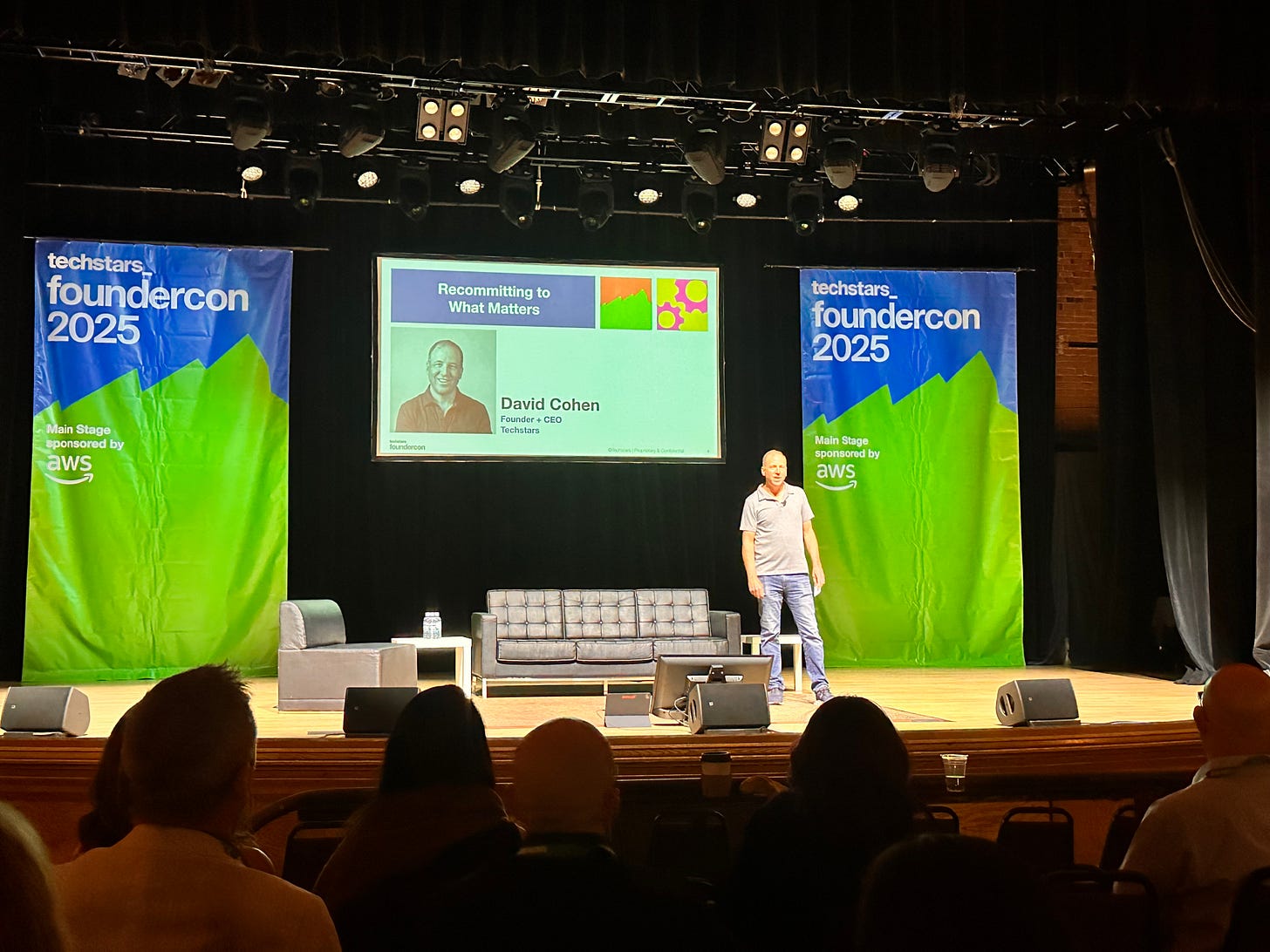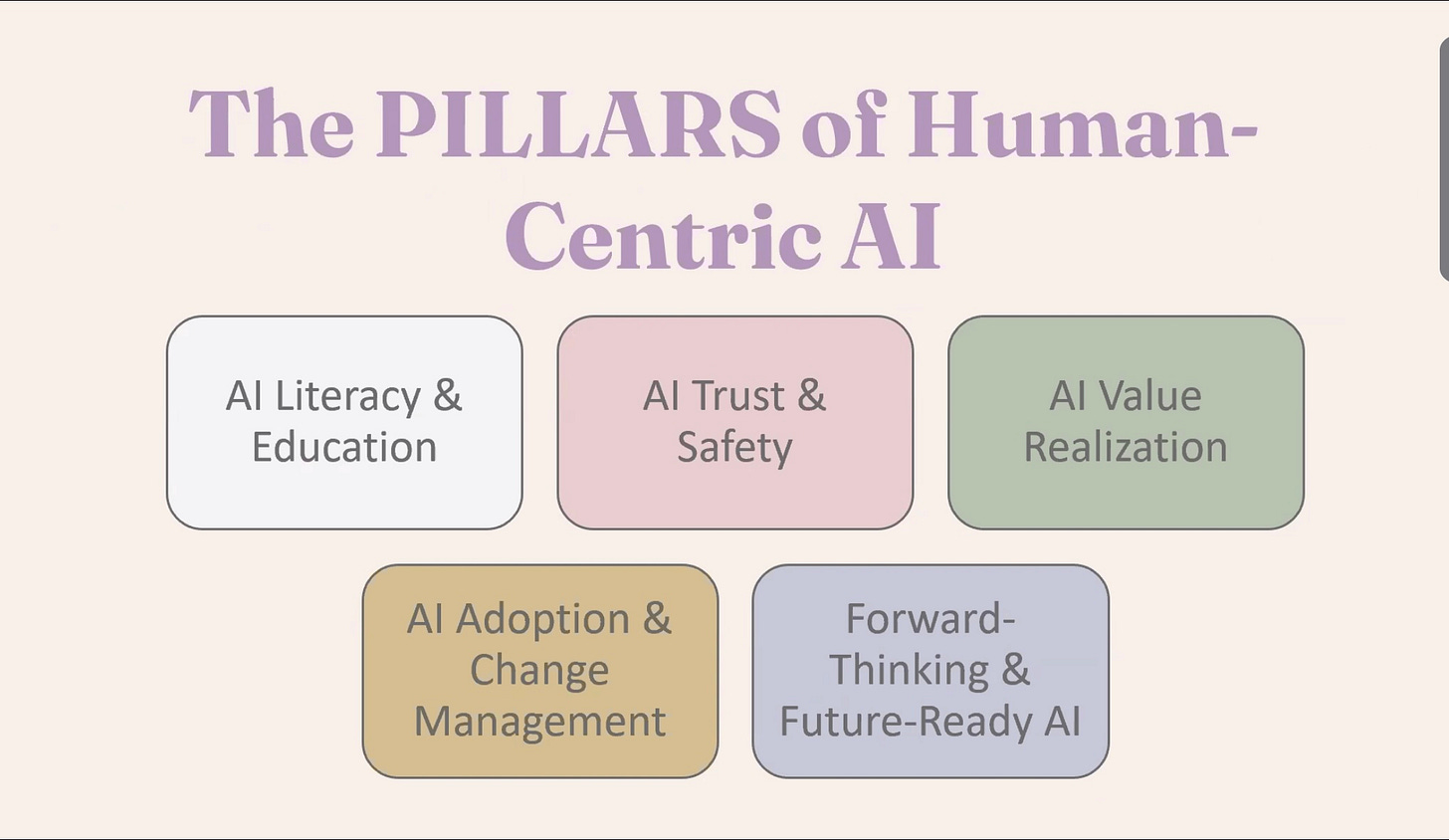Beyond the Noise – Why the Future of Workforce Innovation, Lies in Simplicity.
Insights from 10 weeks in Colorado: it's time to recommit, to what matters.
Over the past decade, the conversation about “the future of work” has become deafening. Every week, another tool promises to revolutionise learning, engagement, or performance. And still, we are flatlining on employee happiness. If not going backwards.
During my recent 10 weeks in Colorado, meeting with more than 40 founders, CEOs, investors, and workforce leaders - a revealing narrative emerged as to why.
Behind the noise, leaders are quite simply, exhausted.
The Paradox of Progress
In Denver and Boulder, I met leaders running fast-growing mid-sized companies (typically 100–500 employees), across sectors from Technology to Healthcare to Professional services. They were open, curious, generous with their time. But when the conversation turned to workforce development, the tone shifted.
Everyone agreed it mattered. Few felt they had the capacity to focus on it. I heard about everything else that seemed to matter more, than putting their attention on enabling their teams to develop faster. And a lot of the competing priorities were reductive vs additive.
The paradox is this: innovation is abundant, but attention is scarce. Leaders are drowning in competing priorities. We’re in a typical downward cycle of appetite for new, while we’re focussing on the immediate need.
They’d like to re-imagine how people can better learn and grow at work - but there’s simply no bandwidth left to lead that change.
The Overload Economy
The U.S. market has an extraordinary ability to produce solutions. Every function has platforms. Most people are playing with AI. Every process is being explored for automation. Yet in many of my meetings, the question that surfaced wasn’t what to use - it was more what to stop using.
One leader described it perfectly:
“We’ve built an ecosystem of tools that’s meant to make work easier. But somehow, work feels heavier.”
The result is an overload economy, where well-intended innovation seems to be becoming counter-productive. Employees face lots of new and fragmented systems. Managers are spending hours toggling between dashboards.
And HR teams losing sight of what truly drives growth - giving people the space, feedback, and support to progress on their own terms.
Getting Back to Basics
What stood out in Colorado was a quiet recognition that it’s time to get back to basics. The need to refocus fast, on first-principles - the things that matter most to making business thrive and be sustainable again.
The companies moving fastest weren’t adding more complexity, they were stripping it away.
In the context of HR & Leadership systems - instead of giant learning management systems or soul-less engagement platforms, those that are winning are focused on simple, human-centred questions and solutions:
Do we know our peoples potential well enough?
Do we know where they’re heading?
Do our managers have the tools and confidence to guide them?
Are we enabling growth in the flow of work - not in offsite workshops?
Innovation, in this context, isn’t about doing more. It’s about making progress feel effortless. It’s about doing less, of the right things.
Human-Centred AI
AI came up in almost every conversation I had. But not in the “let’s replace humans” sense. Leaders are cautious - even wary - of what I would call the “AI amplification of naivety” currently on the rise in GenZ and Alpha, trusting the answers, without human experience or context. What they want are systems that augment human wisdom, not automate it away.
The most exciting opportunities in the near future I think, are those where AI quietly supports both managers and their teams - surfacing insights, helping simplify decisions, personalising learning, and real-time problem solving - on the job, without adding noise.
When designed well AI can help managers see patterns they miss, and give employees solutions & pathways they might never have imagined. That’s not about technology replacing empathy. It’s about technology restoring it - by giving leaders back the time and clarity they’ve lost.
And that’s a creator of hope. Which is desperately needed in business today.
The Future Belongs to the Quiet Innovators
My biggest reflection from 10 weeks immersed in the Colorado ecosystem is that the next wave of workforce innovation won’t come from automating what we already have, nor will it come - I don’t believe - by the purist adoption of generalist LLMs.
It will come from those who design smarter, smaller, more silent applications - for creating calm, clarity, and focus.
Platforms that feel light, empowering, and human.
Tools that invite people in - not force them through.
Technology that guides expertly, rather than commands or demands.
And enabling Agency vs building Agents.
The companies that succeed won’t be the ones with the most complex systems or agent-driven features.
They’ll be the ones that help people do their best work, by aligning to their human rhythms and offering simple, on the job support when needed.
That’s the role we play at ACTVO and that’s why I’ve left feeling excited about both the challenge and the opportunities ahead.
If you’d like to have a chat about what we’re doing and how we might support your team to grow with ‘on-the-job-coaching’ - please reach out.




